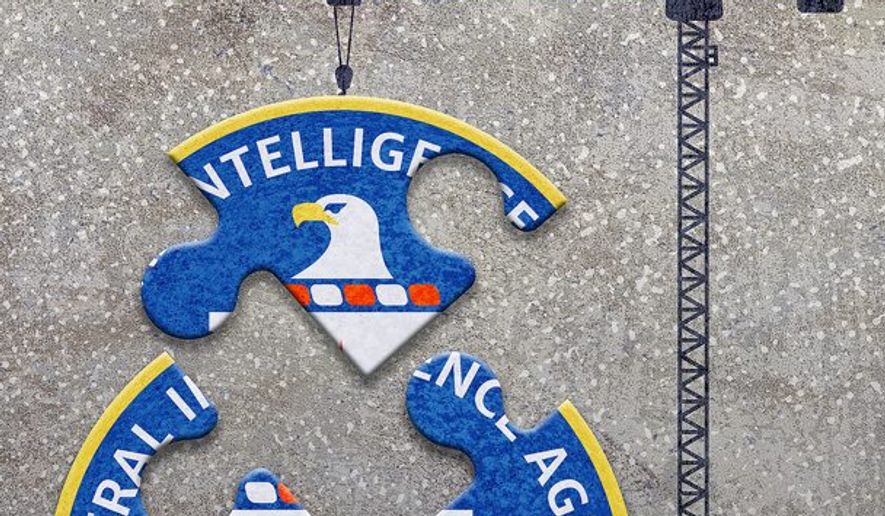OPINION:
America’s premier spy shop is opening up online in its never-ending search for new talent.
Last month, for the first time ever, the CIA began airing recruitment videos on entertainment, news and lifestyle streaming services. And the clandestine life appears to have its attractions.
Employment applications have increased significantly during the past three months of COVID-19 lockdown, building on a 2019 that was already the CIA’s best recruiting year in a decade.
But rather than resting on these laurels, CIA Director Gina Haspel has energetically pursued an innovative approach to hiring, which she emphasized was “an important step forward to reach talented Americans with the diversity of experiences we require to be the world’s premier intelligence service.”
Ms. Haspel’s own path to a life of duty at CIA, starting in 1985, was fortuitous — not at all like the sophisticated recruitment effort she is now leading. She first set her sights on attending the U.S. Military Academy at West Point, which at the time did not accept female applicants. After graduating from college, she worked as a contractor with the 10th Special Forces Group, where Michael Vickers, who himself would go on to an illustrious career in the military and at CIA capped by a stint as undersecretary of defense for intelligence, encouraged her to consider a life in intelligence.
Using the manual typewriter she had used in college, Ms. Haspel composed a letter which she placed in an envelope marked “CIA, Washington D.C.”
At the heart of CIA’s new recruitment push is the recognition that the agency’s success depends crucially on its quality of its intelligence officers. Their mission is human intelligence or “HUMINT,” the art of recruiting spies and stealing secrets as well as compiling the all-source analysis on which the president relies to make foreign policy decisions.
During my CIA career, I saw first-hand how every officer, even those with the least experience, could make the most significant impact because their superiors embraced an ethos of inclusion. For CIA analysts and data collectors, that meant striving for a 360-degree optic on the some of the most complex and opaque security challenges the country faces.
Respecting different backgrounds and viewpoints, CIA intelligence officers rally together to ensure they do not overlook a key point of analysis.
I remember serving in war zones, where rank melted away in the formal and informal quest for information, where everyone’s input mattered and a considered joint assessment could mean the difference between life and death when, say, meeting with a high-threat terrorist source. Our diversity was our strength and our shared concept of patriotic duty and the importance of the mission were what bound us together as a team.
An ethnically and racially diverse workforce — including those whose families arrived generations ago and new immigrants only recently arrived, a workforce with varied educational backgrounds and interests — enables the inclusive milieu on which the CIA’s success rests. And that diversity reinforces a commitment to intellectual integrity, to telling one’s superiors, up to and including the director, not what they want to hear but what they need to know.
Today, the stakes could not be higher. The U.S. is facing a myriad of complex, significant threats to our national security. Intelligence on nuclear proliferation, transnational terrorism and hard targets like Iran, North Korea, China and Russia is arguably more challenging to obtain and consequential than ever before.
The extensive CIA application process is designed to determine whether prospective officers can excel in a demanding and often stressful environment. I will never forget how every morning on the way into work at CIA Headquarters, I would greet the security officer and look over at the stars on the memorial wall commemorating our fallen heroes. In the evening as I left, I would do the same thing.
All of our citizens should have an equal opportunity to pursue a CIA career, and getting recruitment right matters. Even the greatest of the agency’s operational successes are ephemeral, never an end point in the struggle to keep the country safe.
Hiring the right people is also a force multiplier that will be felt over decades of service to our nation. Speaking to Auburn University in 2019, Ms. Haspel emphasized the importance of increasing the agency’s “investment,” meaning more CIA officers serving in the overseas field and greater emphasis on language training.
The CIA, she said, should be “an employer of choice for all Americans.”
But as the director knows from her own experience 35 years ago, it’s too sacred of a mission to leave simply to chance.
• Daniel N. Hoffman is a retired clandestine services officer and former chief of station with the Central Intelligence Agency. His combined 30 years of government service included high-level overseas and domestic positions at the CIA. He has been a Fox News contributor since May 2018. Follow him on Twitter @DanielHoffmanDC.




Please read our comment policy before commenting.